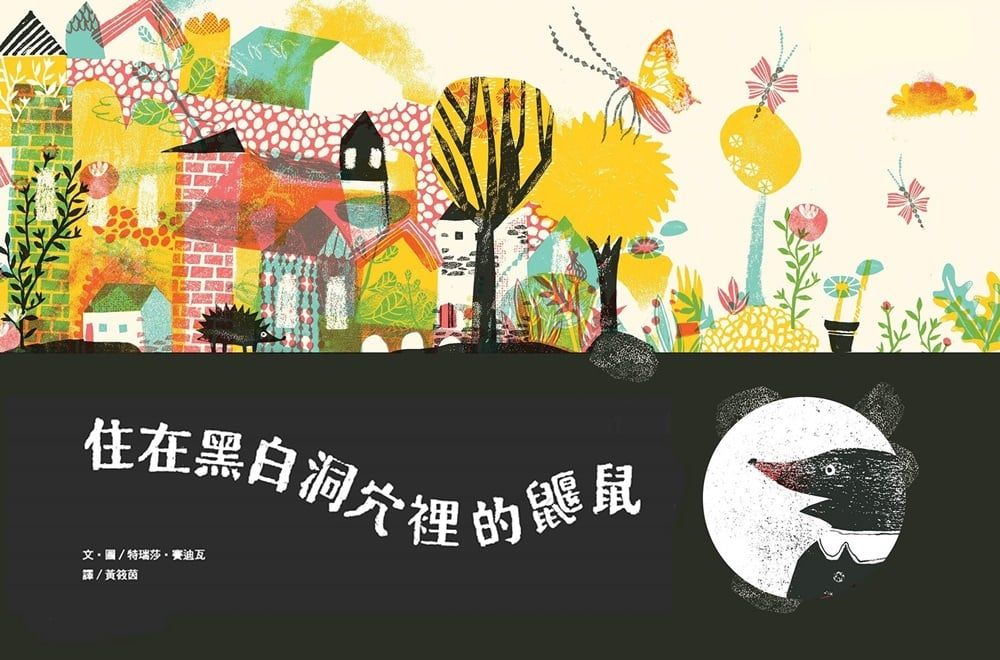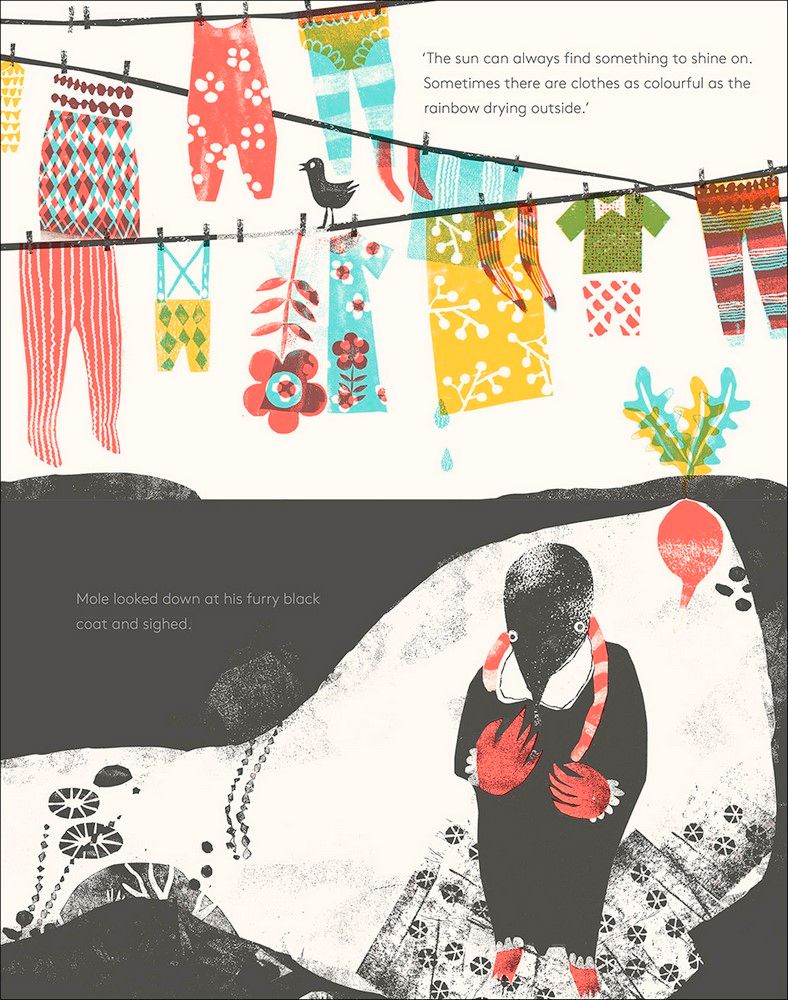Embrace the dark or escape the shadows? Sacrifice and Maturity in "The Mole Who Lived in a Black and White Cave"
The original link to the study of Hong Qi and Mrs. Yuan
I didn't have the habit of reading picture books, but one day I saw Mr. Cai Yijia recommend this book "The Mole Living in a Black and White Cave" on the Facebook fan page of the Soul Workshop, so I looked for this book to read.
On the fan page , a student of the online lecture wrote to Mr. Yijia. He said that Jung's writings constantly emphasize the importance of accepting the inner shadow. But this is actually not an easy process, because people will struggle and suffer in the dark.
So in the end, there may still be a question, should we embrace, accept the darkness, or should we come out of it?
Regarding this issue, Teacher Yi Jia said: "Jung has always been trying to find a dynamic balance in the dark, obeying, resisting, and trying to digest it rationally." He also said that people will struggle in the dark, although they know they are struggling didn't work either.
Then Teacher Yijia introduced the book, "The Mole Living in the Black and White Cave".

This picture book story is actually very simple. I read it in five minutes.
The story describes a mole who lives underground and never goes out into the outside world. In his cave, only a chandelier is his good friend, who will chat with him.
And this chandelier is actually a radish, the radish is buried in the ground, and the radish leaves are on the ground. Every day, the radish will tell the story of the outside world to the mole, saying that there is the sun, the moon, the stars, and all kinds of flowers, birds and animals in the sky.
Radish Chandelier kept persuading Mole that he should go to see the outside world, but he was too scared to go out.
As a result, one day, the mole was awakened by the sunlight while sleeping. He opened his eyes and saw that his chandelier friend was gone. Turns out the radish was pulled. The sun shone through the vacant hole in the radish.
Mole, who lost his friend, felt very lonely and kept crying. He felt that the world became very dark at that moment.
But he remembered what his friend said, asking him to go out of the ground and see the outside world. So Mole mustered up his courage and went out, and only then did he realize how rich and beautiful the outside world was.

The story ends like this, very simple, without too many twists and turns. The main focus is on how Mole keeps rationalizing his cowardice at first, making excuses for his cowardice, and then how he faces the outside world.
What I think is more interesting is that Teacher Yijia said that he likes the image of radish/chandelier very much. As a chandelier, he illuminates the mole, and as a radish, he is actually an intermediary between the light and the darkness of the mole. After the radish was plucked, the mole came to the bright world. Teacher Yijia thinks this has the meaning of maturity and sacrifice .
The teacher did not elaborate further on maturity and sacrifice. But in my experience of reading Jung, sacrifice actually means a transformation. For example, when Camber, a mythologist who studied under Jung, talked about the sacrament, he said that eating bread and drinking red wine symbolized eating the flesh and blood of Jesus; this is actually a kind of sacrifice, a kind of transformation. The life of Jesus is sacrificed here, and transformation means that when we swallow bread and wine, it is as if the spirit of Jesus is inside us, and this will transform our minds.
In this sense, sacrifice and maturity are actually one and the same thing. Human growth actually means that we will lose something: we lose our childhood, the protection of our parents, and the environment in which we are held in the palm of our hands, but we gain independence accordingly. This is actually a kind of transformation, a process of becoming mature.
So back to the original question: Are we going to embrace the darkness, or are we going to get out of it? What do you think about this question?
Personal website: Hong Qi and Mrs. Yuan's study
Liker Social: Hong Qi
Podcasts: Spotify , Google Podcasts , Anchor
YouTube Channel / Facebook Fan Page / Instagram
Like my work? Don't forget to support and clap, let me know that you are with me on the road of creation. Keep this enthusiasm together!

- Author
- More